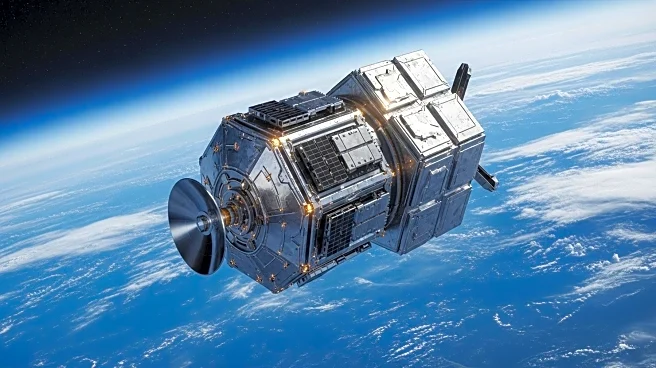What's Happening?
Scale AI is establishing a new data center in the former headquarters of the Post-Dispatch newspaper near the National Geospatial-Intelligence Agency's (NGA) campus in St. Louis. This move is supported by a $99 million contract from the Army, aimed at enhancing research and development in geospatial AI. The initiative is part of a broader effort by GeoFutures, a project under Greater St. Louis, Inc., to bolster the geospatial ecosystem in the region. This includes attracting new businesses, expanding the workforce, and fostering innovation in sectors such as biotechnology and agricultural technology. The city is already home to major defense and geospatial players, including Maxar, Leonardo, and General Dynamics Information Technology, and is seen as a potential hub for defense technology.
Why It's Important?
The establishment of Scale AI's data center in St. Louis signifies a strategic investment in the region's growing geospatial industry. This development is expected to attract more startups and investors, thereby enhancing the local economy and creating job opportunities. The focus on geospatial AI is crucial for national security and other sectors, providing high-quality, AI-ready data essential for building AI solutions. The initiative aligns with broader efforts to decentralize defense innovation beyond Washington, D.C., and foster regional hubs for technological advancement. This could lead to increased collaboration between government, academia, and private industry, positioning St. Louis as a key player in the defense tech landscape.
What's Next?
The next steps involve further integration of Scale AI into the local geospatial community, potentially leading to partnerships with institutions like the University of Missouri, St. Louis, and the T-REX innovation center. The strategic roadmap by GeoFutures suggests creating a dedicated organization to support geospatial startups and existing defense contractors. Additionally, legislative efforts, such as the bill championed by Sen. Eric Schmitt, aim to establish regional hubs for defense-related technologies, which could further solidify St. Louis's role in this sector. The ongoing development of NGA's new headquarters and the expansion of GDIT's workforce in the area are also expected to contribute to this growth.
Beyond the Headlines
The move by Scale AI and the broader GeoFutures initiative highlight a shift towards regional innovation hubs, which could redefine the traditional defense and tech landscapes. This decentralization may lead to more diverse and resilient economic ecosystems, reducing reliance on established tech centers like Silicon Valley. The focus on geospatial technology also underscores its growing importance across various industries, offering new career paths and economic opportunities for local talent. This development could inspire other regions to adopt similar models, fostering a more distributed and inclusive approach to technological innovation.









